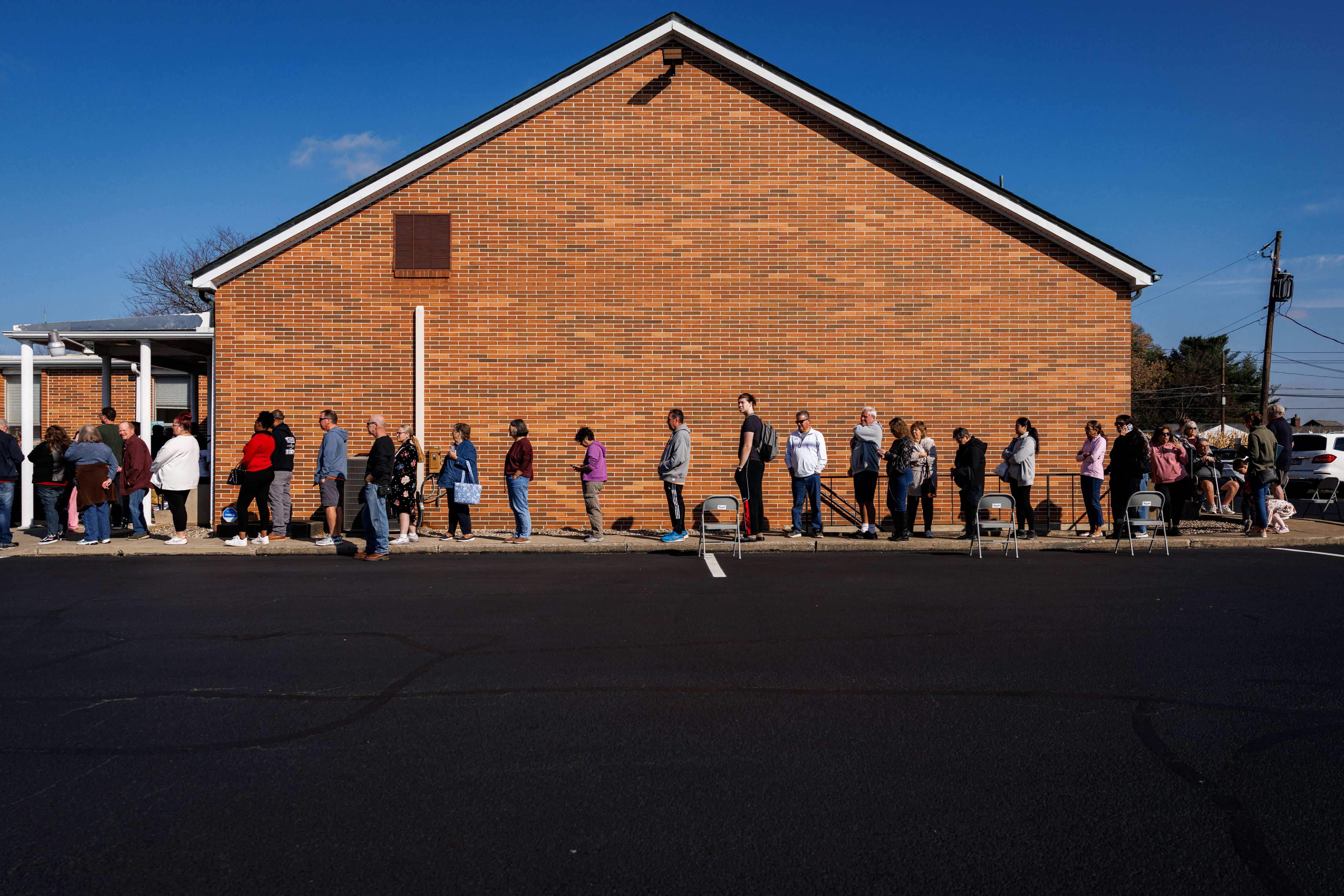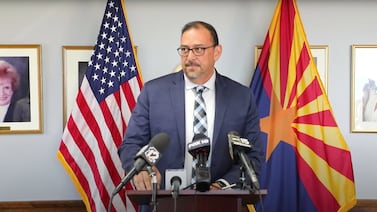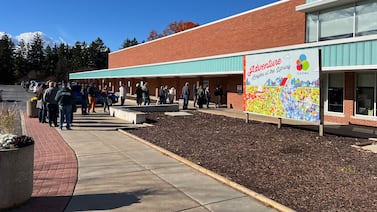Votebeat is a nonprofit news organization reporting on voting access and election administration across the U.S. Sign up for Votebeat’s free national newsletter here.
The polls have been open for several hours today, and — knock on wood — things are going mostly smoothly across the country: Lines are mostly manageable, the technology is working as intended, and there have been no reports of the types of chaos or violence many were concerned about.
“I’m really pleased to say that so far, our 25,000 volunteers in the field are reporting it’s an overall smooth Election Day across the country, and that’s a good thing,” Virginia Kase Solomón, president of the nonpartisan group Common Cause told reporters this morning.
There are exceptions. But even these are unlikely to ultimately affect vote counts or voters’ ability to cast their ballots.
Most notably, bomb threats were called into five voting locations in Fulton County, Georgia, which includes parts of Metro Atlanta. Two locations were evacuated, but the threats were determined to be “non-credible,” and voting was back up and running in under 30 minutes in each location. Both locations will stay open late to accommodate the delay. Georgia Secretary of State Brad Raffensperger said that the threats may be “Russian in origin.”
—Jessica Huseman
Pennsylvania: Machines down in Cambria County
In Cambria County, Pennsylvania, an issue with scanners prevented some voters from scanning their ballots at polling locations. Poll workers told voters to put ballots that they couldn’t scan into in secure lock boxes that election workers will scan later in the day. In response, the county will keep the affected voting locations open for two extra hours, until 10 p.m..
There is — as with everything in elections — redundancies to make sure there is no problem,” David Becker, the founder of the Center for Election Innovation and Research, told reporters on Tuesday morning.
Meanwhile, Philadelphia’s mail ballot counting hummed along smoothly Tuesday morning with no issues reported.
Starting at 7 a.m., the county began processing the more than 185,000 mail ballots it has received so far. This number will continue to rise as voters return their ballots throughout the day up until the 8 p.m. deadline.
City officials did not have an estimate of how many ballots had been processed by noon, but that figure should become more clear after 8 p.m.
The processing is happening “much quicker than 2020,” City Commissioner Seth Bluestein said.
Bluestein said there have been no issues with the city’s new envelope-opening machines. Commissioner Lisa Deeley expressed concern last month that the new machines might damage ballots when opening the envelopes, thus causing delays as the ballots would need to be recreated.
—Carter Walker
Wisconsin: Slow start to absentee ballot counting in Milwaukee
Absentee ballot processing and counting began at Milwaukee’s central counting facility just before 9 a.m. Tuesday — nearly an hour later than planned, and about two hours after the state allows election officials to begin processing absentee ballots.
The delay was mostly due to the extra time needed to check in workers and place them at their work stations, Milwaukee spokesperson Melissa Howard said.
The city remains on track to finish tabulating ballots by 2 or 3 a.m. Wednesday, Paulina Gutiérrez, head of Milwaukee’s election commission, said on Tuesday.
Under Milwaukee rules, all of the city’s 106,000 absentee ballots are processed and tabulated at one central location. State law doesn’t allow election officials to tabulate or process any ballots before Election Day, a policy that is largely responsible for the typically late reporting of results from absentee ballots.
A bipartisan group of lawmakers tried to change that policy this past legislative session, but the legislation stalled in the Senate.
—Alex Shur
Arizona: Pressure on Maricopa County
Hundreds of reporters have come from around the globe to monitor how voting goes in Maricopa County, one of the largest and most closely watched swing counties. Maricopa County Supervisor Bill Gates said at a press conference that voting was going smoothly. Sheriff Russ Skinner, also at the press conference, said there had been no credible public safety threats.
While there have been reports online of problems with ballot printers in the county, Gates said that those are false. There have only been a few expected maintenance issues. Over 93,000 voters had checked in at the polls, as of midday.
—Jen Fifield
Jessica Huseman is Votebeat’s editorial director and is based in Dallas. Contact Jessica at jhuseman@votebeat.org.
Carter Walker is a reporter for Votebeat in partnership with Spotlight PA. Contact Carter at cwalker@votebeat.org.
Alexander Shur is a reporter for Votebeat based in Wisconsin. Contact Alexander at ashur@votebeat.org.
Jen Fifield is a reporter for Votebeat based in Arizona. Contact Jen at jfifield@votebeat.org.






